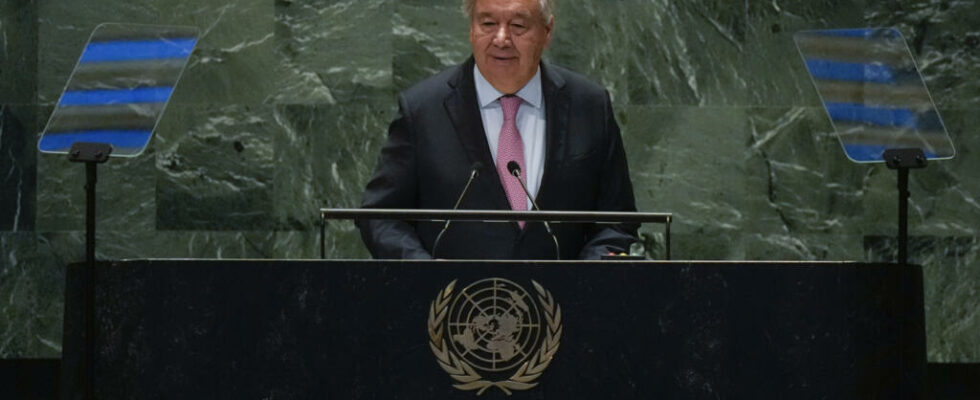UN member states pledged on Sunday, September 22, to adopt a series of measures designed to provide ” a better future ” for humanity. The text promises in particular to reform the Security Council, by strengthening Africa’s place there.
4 mins
The Secretary General of theUN Antonio Guterres had launched the idea of this “ Summit of the Future » presented as a « unique opportunity “to change the course of human history.” We have opened the door, now it is up to all of us to step through it, because it is not just about agreement, it is about action. And today, I challenge you to take action. “, he declared this Sunday at the United Nations podium after the adoption of the text.
After tough negotiations until the last moment, he had prepared several versions of his speech in case of failure of this summit which opens the annual high mass of the UN General Assembly where more than 130 heads of state and government will take turns at the podium from September 24. Without preventing the adoption of the pact, Russia, supported by Belarus, Iran, North Korea, Nicaragua and Syria, showed its opposition to the text, demanding in vain to add elements emphasizing that the UN ” cannot intervene “in business” internal » of the States.
African delegation blocks Russian amendment
African delegation blocks Russian amendment
A list of actions and reforms
The pact presents on more than twenty pages 56 ” actions ” in areas ranging from the importance of multilateralism to respect for the UN Charter and peacekeeping, from the reform of international financial institutions to that of the UN Security Council, or the fight against climate changedisarmament and the development of artificial intelligence.
The fight against global warming was one of the delicate points of the negotiations, the reference to the ” transition ” to get out of fossil fuels, which had disappeared from the draft text for several weeks before returning to it. Another sensitive point in the negotiations was the demand from developing countries for the reform of international financial institutions. They insisted on concrete commitments, in particular to facilitate access for some of them to preferential financing to deal in particular with the impacts of climate change.
Repairing the injustice done to Africa
On the Security Council reformthe member states that signed the “Compact for the Future” say they want to repair ” as a priority the historical injustice done to Africa “The Security Council, according to this pact, must be expanded so that it is more representative of the current composition of the UN and reflects the world as it is today.
This expansion is not just about Africa, it is also about improving the representation of underrepresented groups of countries such as Asia and the Pacific, Latin America and the Caribbean. But given the current injustice, the pact says it should be reserved for the African continent. a special fate “.
Overall, the pact says it is important to make the Security Council more representative, more inclusive, more transparent, more democratic and more accountable as soon as possible. The text states that the total number of members on this expanded council should be determined by reconciling ” representativeness and efficiency “It also implicitly acknowledges the disagreements on the issue of the veto right by indicating the need to redouble efforts to reach an agreement on this issue.
What future for the Pact?
Will the United Nations manage to go beyond wishful thinking? The signed pact in any case notes the stakes of this reform. We musthe said, restore confidence in global institutions by making them more representative and more responsive to today’s world “.
Ambitious or not, the Pact and its annexes (Global Digital Compact and Declaration for Future Generations) are in any case non-binding, raising the question of their implementation while some of the principles put forward, such as the protection of civilians in conflicts, are violated daily.
Also readUS supports idea of two permanent seats for Africa on UN Security Council
